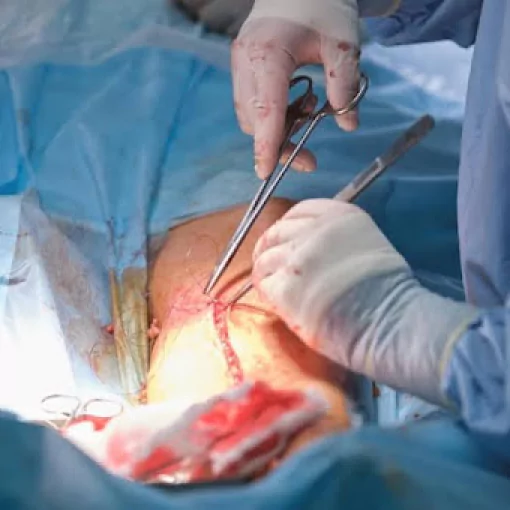- +91 62384 78716 +91 99475 78797
-
Sasthamangalam, Trivandrum
Sasthamangalam, Trivandrum
Out of every 100 patients who undergo Knee replacement surgery, 85 to 90 patients can expect their knee implants to last about 15 to 20 years. This means that after some time, some patients may later need a second operation to replace the implants. This is known as revision total knee replacement or knee revision.
Some knee revisions need the replacement of only one implant, while others need a complete exchange of all the prostheses that were implanted during the original knee replacement surgery. It is a complicated procedure that needs specialized implants, extensive planning, lengthy operating times, and a higher level of difficult surgical skills.
Some of the most common reasons for revision knee surgery are
1) Wear and tear – This is more common in younger patients who have undergone primary knee replacement surgery. As these patients are more active, the prosthesis can get worn out earlier thus requiring replacement of prosthesis. This also includes loosening and breakage of prosthesis due to friction over time.
2) Infection – The risk of infection after primary knee replacement surgery is less than 1%, but when it does occur, a revision knee surgery will be required.
3) Instability – This is usually due to a suboptimal surgical technique or improper implant usage where the soft tissues surrounding the knee are not able to provide enough stability necessary for adequate function while walking or standing.
4) Stiffness – When excessive scar tissue builds up around the knee implant and prevents the joint from moving completely, a revision surgery may have to be performed to release the scar tissue reimplant the prosthesis in correct alignment.
5) Fractures around the knee – The severity of the fracture will decide whether revision surgery is needed. Fractures surrounding the knee implants that disturb the stability of the implant may warrant revision surgery.
Common symptoms of a failed knee implant are pain, inability to bend the knee, knee instability, and stiffness or swelling in the knee.
When you decide to proceed for revision knee replacement, your surgeon will perform a thorough clinical exam and X-rays and lab tests. When infection is detected, the knee is aspirated and the fluid will be sent to a laboratory to check for infection and if confirmed, to find the specific bacteria causing the infection.
Sometimes, in addition to X-rays, bone scans, Magnetic Resonance Imaging (MRI) or CT scans may be used to quantify changes in the position of the implant components and thus to find the cause for failure to help plan for the surgery.
During surgery, the old implant is eliminated, the joint thoroughly lavaged and, if needed, bone grafts are used to fill any gaps where bone has become defective. Then the specialised revision knee implant is placed. When the gaps are large, metal wedges or screws and bone cement may be used to augment the bone and provide support to the new implant.
Post op recovery differs, but in most cases, physical therapy will be started within 24 hours of the treatment and will continue for up to three months.
There are certain complications associated with the surgery that your surgeon will take precautions against. Two of the common ones are infection and Deep Vein Thrombosis (DVT). Your surgeon will maintain sterile precautions before and during surgery and will administer appropriate antibiotics to guard against infections. He will also give anticoagulant injection to prevent DVT.
Most patients who go through revision knee surgery can expect to have well to excellent results. Expected results include pain relief with increased function and stability, however, full pain relief and restoration of function is not always possible.
Revision knee replacement surgery is a complex procedure that requires an experienced Joint Replacement surgeon and proper preoperative planning to achieve satisfactory outcomes.

Copyright © 2025 Dr. Ganesh Navaneedhan. All Rights Reserved. | Designed By Harvee healthcare